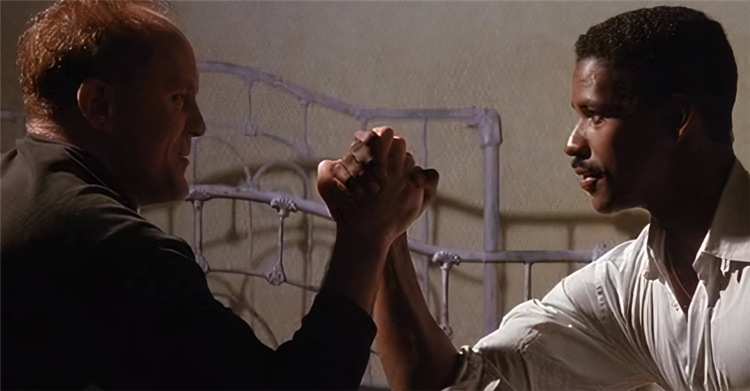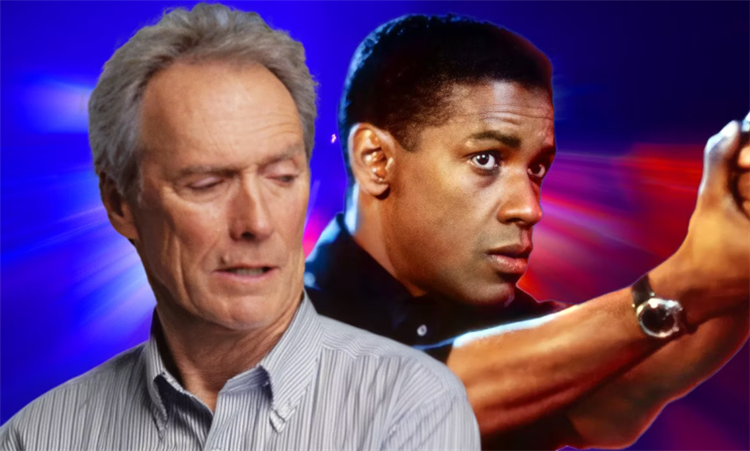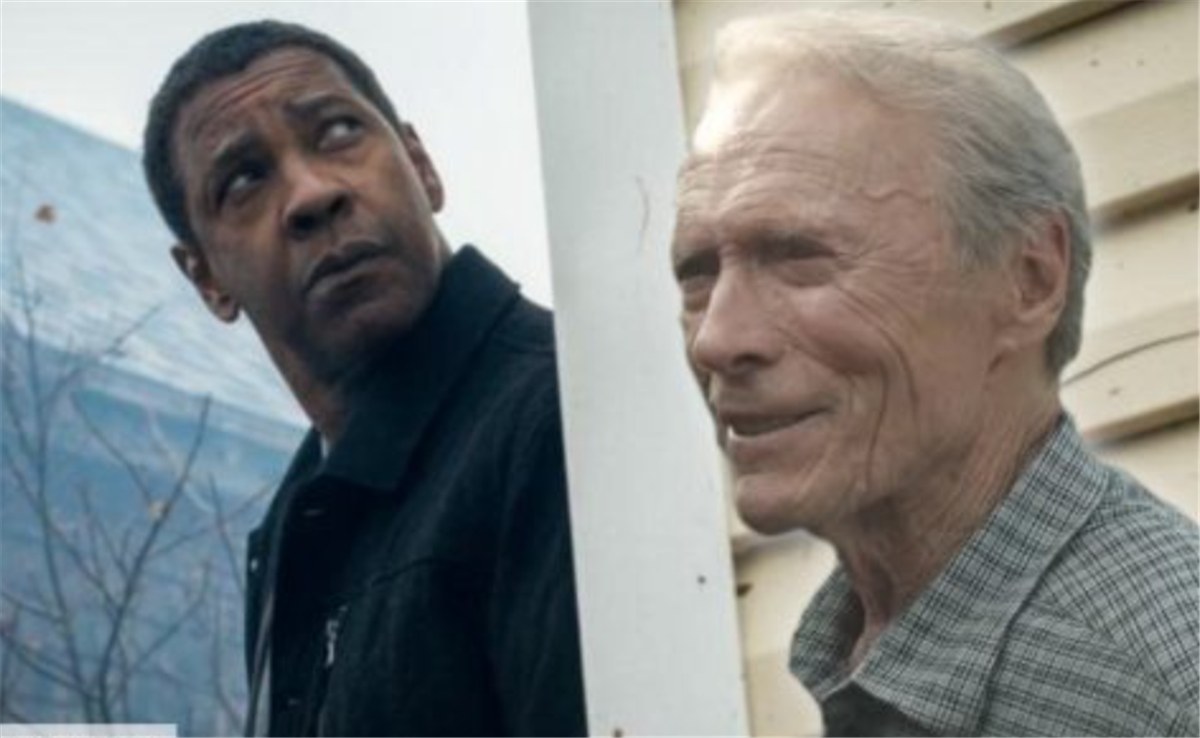The 1991 action movie Ricochet was neither a critical nor a commercial success, but it lives on in the memories of ’90s kids who saw it on TV and were stricken by the film’s relentless plot, in which Denzel Washington plays a former police officer brutally tormented by a hitman he helped put away. Decades after the film’s release, Fred Dekker, who wrote the first draft of Ricochet, revealed in an interview that he had written the script not only as a vehicle for Clint Eastwood, but specifically as an entry in Eastwood’s Dirty Harry franchise, in which he plays the only police officer in San Francisco who understands that crime has one solution: violence.
The Ricochet origin story gets even better, as Dekker recalls hearing that the movie was “too grim” for Eastwood. It’s gratifying to hear that the movie that may have freaked you out as a child also rattled this paragon of toughness – even though we only have this story through hearsay. However, revisiting the movie in today’s landscape, Ricochet can no longer be perceived as dark and gritty as it once was. Its attempt at being provocative no longer holds up. Yet, the effort is endearing.
What Is ‘Ricochet’ About?
The script for Ricochet was drastically rewritten by Die Hard screenwriter Stephen de Souza; the lead role was renamed Nick Styles, and went to Washington. At that point in his career, Washington had been nominated for two Oscars, and won one for his role in Glory. But Ricochet was Washington’s first foray into this brand of Hollywood action movie, a genre which he has since made his home away from home.
We first meet Styles at the beginning of his career, when he’s a straight arrow Los Angeles police officer who’s also attending law school with the ambition of some day entering city politics. His career is supercharged one night by a random encounter. While on patrol with his partner, Doyle (Kevin Pollak), he happens upon a mob execution in progress. The killer is Earl Talbot Blake, played by John Lithgow in one of his many unhinged villain roles. Here, as in Blow Out, Lithgow is a hired killer who’s more passionate about his work than the people who hired him. Styles foils Blake’s plans, and the humiliating arrest is caught on camera. Styles becomes a legend, and Blake goes to prison.
We trace the course of the two men’s lives for a surprisingly long time – 13 years in story time, and nearly an hour in screen time. Styles uses his fame to launch his career as a celebrated assistant district attorney. About halfway through the film, the tables turn. With the help of his infatuated accomplice, Kim (Josh Evans), Blake escapes from prison and puts into motion his long-gestating plan to ruin Styles’ life.
As an Obsessed Killer, John Lithgow Unleashes Hell in ‘Ricochet’

Ricochet spends most of its time on backstory that the entire revenge plot takes up less than an hour. But what it lacks in length it makes up for in intensity. Blake begins by kidnapping and murdering Farris (John Cothran), one of Styles’ political allies, and staging his death as a suicide, with a note that implies that both Farris and Styles were involved in child pornography. Next, Blake kidnaps Styles, forcibly injects him with drugs, and hires a sex worker who sexually assaults him, having sex with him against his will. Sadly, this rape storyline is not treated with the gravity it deserves in the movie. Styles is dumped at City Hall, but when he tries to convince his boss that he was kidnapped by Blake, no one believes him, as Blake has staged his own death.
Everyone in Styles’ life begins to assume the worst of him, including his own family. Styles himself becomes paranoid, and assaults a children’s clown at the park, believing it to be Blake. After Blake ups the ante once again, by framing Styles for murder, the straight arrow cop realizes he has to learn to fight dirty. Styles seeks the assistance of Odessa (Ice-T), a criminal that he was friends with as a child, but abandoned to focus on his career in law enforcement. Together, they set in motion a plan to turn the tables on Blake, and restore Styles’ name.
How Does ‘Ricochet’ Stack Up Against Other Notably Dark Thrillers?
First of all, it’s intriguing to note that in the same interview in which Dekker talks about Eastwood’s rumored rejection of his screenplay, he acknowledges that the finished film deviated wildly from his own draft (which did not include the abduction and rape scene), so the draft Eastwood likely may have read, was very different from the finished film. What’s particularly interesting is that, in comparison, Ricochet is not as grim as any of the movies in the Dirty Harry franchise, even the latter silly ones like The Dead Pool. It isn’t more grim than Play Misty for Me, the stalker movie Eastwood directed in the 1970s, or than the many, many other stalker movies of the 1990s. For example, Martin Scorsese’sCape Fear, which came out the same autumn, also tells a story about an ex-convict getting revenge, outdoes Ricochet in seediness. Which makes the fact this was reportedly given as Eastwood’s reason for opting out all the more curious.
One element that separates Ricochet from these other films is the nature of its protagonist. In Cape Fear, Nick Nolte’s Sam Bowden is a flawed character who has genuinely wronged Robert De Niro’s Max Cady. Cady’s revenge exploits and exposes Bowden’s character flaws. In Ricochet, Styles is a do-gooder whose only flaw is that he’s too upright. But more than that, the world of Ricochet is an uncorrupted place where good routinely triumphs over evil. Blake is able to frame Styles through an elaborate deception, but it’s not something that Styles deserves, and it’s also not a sign that there’s anything wrong with the way society functions. The voiceover at the end of Cape Fear makes clear that the film’s violent events were permanently traumatizing. Ricochet ends with the hero’s reputation restored with “violent and incontestable proof of his innocence.” After it’s made clear that everything will go back exactly as it was (although with Styles and Odessa’s weekly basketball game satisfyingly restored to the schedule), the film ends on a note of cartoonish comedy, to reassure the audience that none of the proceeding violence was really all that serious.
‘Ricochet’ Might Oversell Its Darkness, But It Has a Saving Grace

The character that defines Ricochet is not Styles or Blake. Surprisingly, it’s Kim, Blake’s adoring, Igor-like assistant. Played by Josh Evans (son of legendary producer Robert Evans), Kim is an early version of the “audience-insert” character. Kim is obsessed with Blake, and while the movie vaguely hints that the pair are in a BDSM relationship, it plays more like the relationship between a supervillain and their supernerd fan who somehow finds himself sucked into the fictional reality of his favorite comic book.
Kim has a line in the film that stays with you. It certainly appears to have been added in post-production, (as it’s spoken off-camera) which, if true, would only make the line funnier. After Blake and Kim knock Styles unconscious to abduct him, Kim adds “I bet he shit his pants. I can’t wait to look.” There’s just something about how much effort this particular line makes to convey a frightening depravity, but only ends up being weird and disgusting. It also sums up the movie and its overzealous tendencies efficiently.
But Ricochet is redeemed by exactly this kind of twisted silliness. It’s directed by Russel Mulcahy, more esteemed as a music video director, and its full of images that pop off the screen like neon. Its plot points are equally loud and colorful, and just as inauthentic. But that’s what makes it fun. John Lithgow, of course, makes for a reliably outsized villain. But Washington also gets in on the action as a similarly manic hero. As a cop, he randomly strips off his clothes to distract a hostage taker. As a district attorney making his closing argument, he does a wild impression of a kid running out of class at the school bell. These aren’t notes you get to see Washington play all that often. That alone is worth the price of admission.
